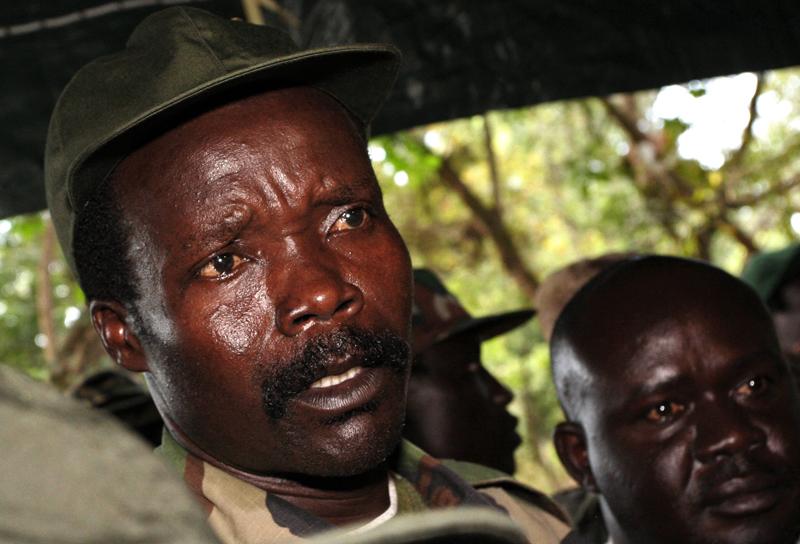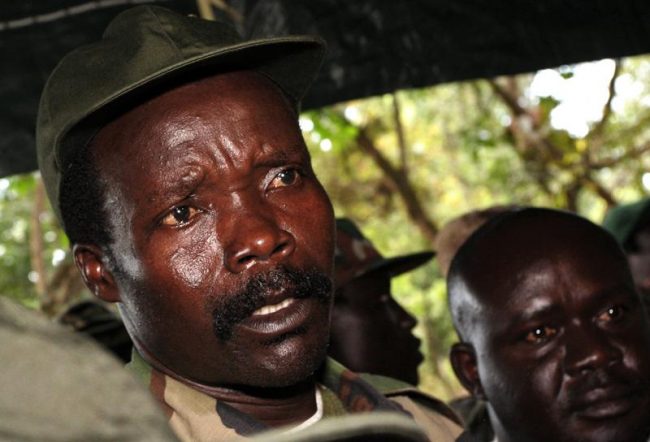
A video by the advocacy group Invisible Children about the atrocities carried out by jungle militia leader Joseph Kony’s Lord’s Resistance Army is rocketing into viral video territory and is racking up millions of page views seemingly by the hour. (Associated Press)
On March 5, the non-profit organization Invisible Children released their viral Kony 2012 video with hopes that it would bring campaign awareness to a target audience of 500,000 viewers. Today, the organization, its filmmaker Jason Russell and most importantly, the video’s war crimes target, Joseph Kony, have skyrocketed into instant fame as YouTube viewers number more than 80 million. Invisible Children representatives visited the SMU campus March 7.
As a marketing student in the Cox School of Business, this campaign has caught and mesmerized my interest, and without even noticing, I began taking notes.
After the video’s release, Anderson Cooper spoke about his own experience reporting on the LRA’s activities, saying that he has “Seen it and worked on it for years. Done stories about it for years. Worked in Africa for years…” Yet, it is easy to take note that Cooper, even in his famed service, had not garnished the viral attention that Russell’s 27 minute video had induced.
What made the difference? Invisible Children’s team says that part of the video’s success is because of their simplistic approach. Interestingly, this is one of the very things that critics have spent the last thirteen days bashing them for – repeatedly.
In the New York Times bestseller “Made to Stick: Why Some Ideas Survive and Others Die by Chip and Dan Heath,” these brothers identify the first principle in sticky ideas as simplicity. In quantitative measures, it appears their simplistic approach is obviously successful, regardless of critics.
Last Friday, just eight days after the video’s release, news broke of Invisible Children’s filmmaker Russell’s public breakdown. Russell was taken to a hospital for mental observation after authorities reported that he was found on a public intersection in various states of undress, vandalizing vehicles and doing what some witnesses reported as masturbating in public. Speechless, I am still taking notes.
I am now noting that there is a price that comes with fame. Perhaps Donald Miller, Christian author of “Blue Like Jazz,” said it best when he blogged about Russell’s breakdown, “There aren’t many things harder in life than dealing with fame.
And dealing with sudden, explosive fame is harder than anything most of us can imagine.” As much as I would like to design a viral marketing campaign, would I be prepared to handle the fame and criticism that would accompany it?
Russell’s wife Danica released this statement:
“Jason has dedicated his adult life to this cause, leading up to KONY2012. We thought a few thousand people would see the film, but in less than a week, millions of people around the world saw it. While that attention was great for raising awareness about Joseph Kony, it also brought a lot of attention to Jason. And because of how personal the film is, many of the attacks against it were also very personal, and Jason took them very hard. Let us say up front that Jason has never had a substance abuse or drinking problem, and this episode wasn’t caused by either of those things. But yes, he did some irrational things brought on by extreme exhaustion and dehydration. On our end, the focus remains only on his health, and protecting our family. We’ll take care of Jason, you take care of the work. The message of the film remains the same: stop at nothing.”
My last note is to remember that we are all humans who strive for success, yet can never fully mitigate the risk for mistakes. I love how Thought Category blogger Todd Clayton conveys this “The problem is, at some point, we all will fall. We will wish we could have done things differently, and we can only hope that our inevitable short-comings don’t make their way to the desktops of millions around the world.” Poignantly, he goes on to say “May we remember that we are all Jason.”
As of today, there are 284 days left in the Kony 2012 campaign. Its success can only be determined in the future. I am curious to know, if Russell had known before he released the Kony 2012 video that it would lead to a mental breakdown for him, would he still have done it? I hope he gets a chance to answer this someday, and I hope his answer would be yes. Isn’t that what the hashtag #stopatnothing really means?
Deanna is a junior majoring in marketing.









